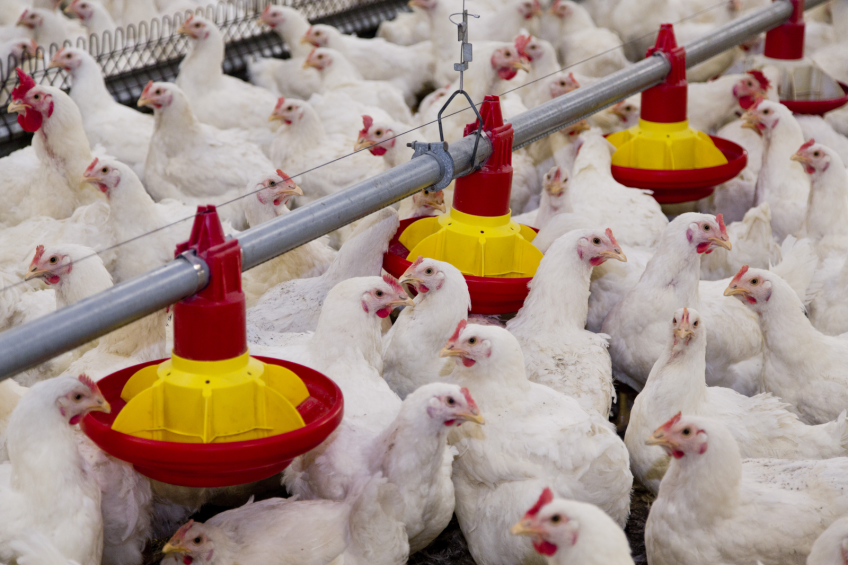Benefits of probiotic-fed Poultry

Sales of probiotic-fed chicken products in the United States have increased 34% in the last year due to the demand for antibiotic-free poultry. US researchers therefore set out to determine the benefits of probiotic-fed chicken.
According to the US Department of Agriculture, Tyson Foods, the country’s largest processor of chicken, announced it would use probiotic-fed chickens in its operations by September 2017. Because of this trend, researchers at Oklahoma State University’s Robert M. Kerr Food and Agricultural Products Center (FAPC), a part of the Division of Agricultural Sciences and Natural Resources, began studying the implementation of probiotics in chicken feed.
“The reason for the study was to help the food industry produce a healthier bird,” says Patricia Rayas, FAPC cereal chemist. “When the probiotics are ingested, they try to outweigh the bad bacteria.”
Different preparations of probiotics tested
Rayas, along with Alejandro Penaloza, visiting assistant professor, and Zorba Hernandez, postdoctoral visiting scientist, began studying probiotics in November 2014. The research team received 300 broiler chickens, which were housed at the OSU poultry farm for 42 days. The broilers were split into four test groups to try different preparations of probiotics.
The team fed probiotics as a supplement in the chickens’ diet by using a mixture of probiotic strains created by Penaloza and a standard feed diet. Probiotics are used to boost the immune system and serve the microbiota in defending bacteria.
Also Interesting: Probiotic strains found in poultry droppings
Can Lactobacilli bacteria, found in chicken manure, serve as a potential probiotic feed additive? A research team from Pakistan studied this in more detail and published the results in the Journal Of beneficial Microbes.
Improved community of microbes in the gut
“Our hypothesis was that the probiotics would improve the community of microbes in the gut of the broiler,” Rayas says. “The broilers were then fed the probiotics 2 different ways – mixed in the feed and liquid administration.”
The final step of the study was to process the chickens in FAPC’s processing facility. Data was collected to calculate feed efficiency, and ground samples of the broilers were taken to the Cereal Chemistry Laboratory for further research.
Increased weight gain in broilers
Results showed in the first 2 weeks the broilers that were fed probiotics had an increased weight gain and lower death rate. When a broiler gains weight, it gains muscle mass and produces more food, which in return increases potential profit and quantity.
“When the main objective is reached, the isolated probiotics may be useful for the poultry to produce chicken that is free of antibiotics and better-feed efficiency,” Hernandez says. Research has shown probiotics give broilers protection for intestinal integrity and help defend the immune system from unwanted bacteria.
Finding the probiotic strains
FAPC’s Cereal Chemistry Laboratory housed the collection of the probiotic strains, which was sourced from wheat. Penaloza isolated the strains from wheat and selected those with high production of exoenzymes. “The advantage of using these strains of probiotics is that it helps improve the use of nutrients in the feed,” Penaloza said. “The strains also will stabilise the microorganisms in the gut of the broilers.” Hard wheat, flour and water were fermented to enrich the microorganism’s spores, Penaloza said.
The strains of probiotics were then isolated, selecting those with high production of enzymes of interest. The strains were placed under intense heat to ensure it would survive when cooking the food pellet.
Probiotic strains for particular uses
The research team is working with OSU’s Technology Development Center to patent mixtures of probiotic strains for particular uses. TDC, which helps with the development of new products, the integration of new technology and the increase of capital investments, also funded this research.
Hernandez says further research is needed to evaluate other strains of probiotics and acquire more knowledge to measure the benefits of using probiotics in the poultry industry.













